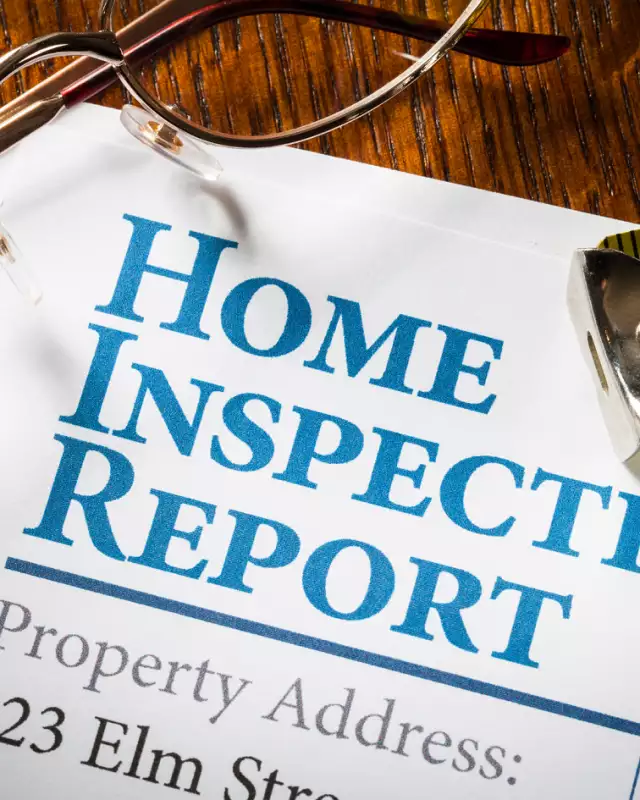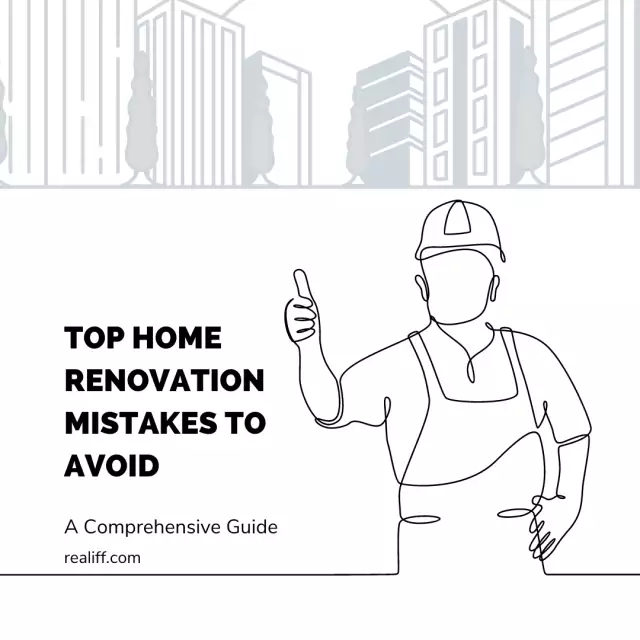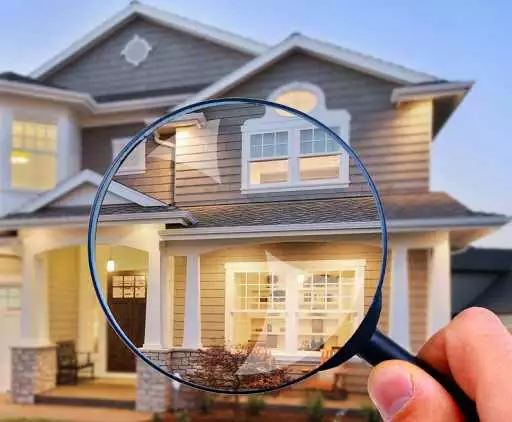The Ultimate Guide to Home Inspections: Ensuring a Wise Investment
The Ultimate Guide to Home Inspections: Ensuring a Wise Investment
Buying a home is one of the most significant investments you'll make in your lifetime. To ensure you're making a sound decision, a home inspection is an essential part of the process. This detailed examination provides a comprehensive overview of the property's condition and helps you identify any potential issues or repairs needed before finalizing the purchase. In this guide, we’ll delve into the importance of home inspections, what they entail, and how they can benefit you as a homebuyer.
What is a Home Inspection?
A home inspection is a thorough evaluation of a property, conducted by a licensed professional inspector. The purpose of this inspection is to assess the current condition of the property, including its structural components and systems. Here’s what a typical home inspection covers:
Structural Integrity:The inspector will check the foundation, walls, roof, and other structural elements to ensure they are sound and free from significant defects.
Roof and Exterior:This includes the inspection of the roof, chimney, gutters, siding, and any exterior structures like decks or porches.

Interior Elements:The inspection will cover walls, ceilings, floors, windows, and doors inside the home.
Systems and Utilities:Key systems such as electrical, plumbing, heating, and cooling will be examined for proper function and safety.
Insulation and Ventilation:The inspector will check the attic, basement, and crawl spaces to ensure they are adequately insulated and ventilated.
Appliances:Built-in appliances such as the stove, oven, and dishwasher are often included in the inspection.
Additional Areas:If applicable, the garage, basement, and any crawl spaces will also be evaluated.
Why is a Home Inspection Important?
A home inspection is a critical step in the home-buying process for several reasons:
Identifying Potential Issues:An inspection can reveal problems that may not be immediately visible to the untrained eye. Issues like roof damage, plumbing leaks, electrical hazards, or structural defects can be costly to repair if not identified early. Knowing about these issues beforehand allows you to make an informed decision about your purchase.
Negotiating Power:The findings from a home inspection provide valuable leverage in negotiations. If significant issues are uncovered, you can request that the seller make repairs, reduce the price, or offer credits towards the cost of repairs. This can save you money and ensure that the property is in good condition when you move in.
Peace of Mind:Buying a home is a major financial commitment. A thorough inspection gives you confidence in the property's condition, helping you avoid unexpected expenses and ensuring you’re making a wise investment.
What to Expect During a Home Inspection
The Inspection Process
During the home inspection, the inspector will conduct a detailed examination of the property. Here’s what you can expect:
Pre-Inspection Meeting:The inspector will review the inspection process and answer any questions you have. It’s a good time to discuss any specific concerns you want them to address.
Inspection Walkthrough:The inspector will systematically check the interior and exterior of the home. They will take notes and photographs of any issues they find.
Interaction and Questions:You are encouraged to attend the inspection. This allows you to see the inspector’s findings firsthand and ask questions about the property’s condition.
Post-Inspection Review:After the inspection, the inspector will provide a detailed report summarizing their findings. This report will include descriptions of any issues, photos, and recommendations for repairs or further evaluations.

Common Issues Found in Home Inspections
Inspectors often uncover a range of issues, from minor cosmetic defects to major problems. Here are some common issues found during home inspections:
Roof Problems:Damaged or missing shingles, leaks, and general wear and tear can be indicators of roof issues that need attention.
Plumbing Issues:Leaks, outdated pipes, and slow-draining sinks are common plumbing problems that can be costly if not addressed.
Electrical System Problems:Outdated wiring, overloaded circuits, and potential fire hazards are critical issues that need to be resolved for safety.
HVAC Issues:Inefficient operation, dirty filters, or outdated heating and cooling systems can affect the home’s comfort and energy efficiency.
Pest and Moisture Damage:Signs of termites, mold, or other pests can indicate serious problems that require professional remediation.
Structural Concerns:Cracks in walls or ceilings and settling or shifting foundations can be signs of structural instability.

What to Do After the Home Inspection
Reviewing the Report
Once you receive the inspection report, review it thoroughly. Pay attention to any significant issues and consider their implications for the property's value and your budget for repairs.
Negotiating Repairs or Price Adjustments
Based on the inspection findings, you can negotiate with the seller to address the issues. Options include:
Requesting Repairs:Ask the seller to make necessary repairs before closing.
Price Reduction:Negotiate a lower purchase price to offset the cost of repairs you’ll need to undertake.
Credit at Closing:Request a credit at closing to cover repair costs.
Making an Informed Decision
Use the inspection report to decide whether to proceed with the purchase, negotiate better terms, or, if the issues are too significant, consider walking away from the deal. Consulting with your real estate agent and a licensed inspector can help you weigh your options.
The Cost of a Home Inspection in California
The cost of a home inspection in California varies based on factors such as the size and age of the property and the inspector’s expertise. On average, inspections range from $300 to $600. Some inspectors may charge extra for specialized services, like termite or pool inspections. It’s a good idea to compare prices and services from several inspectors to find one that fits your needs and budget.
News Section
Recent Developments in Home Inspections
The home inspection industry has seen several notable developments recently. With advancements in technology, inspectors are now using drones for roof inspections and infrared cameras to detect moisture issues behind walls. These innovations are making inspections more thorough and efficient, providing homebuyers with even more detailed insights into their potential new homes.
In addition, many states are considering stricter regulations for home inspectors to ensure higher standards of practice and better protection for consumers. These proposed changes are aimed at improving the overall quality and reliability of home inspections, which can only benefit buyers in the long run.
Quote from an Industry Leader
"Investing in a thorough home inspection is one of the smartest moves a buyer can make. It not only provides peace of mind but also equips you with the knowledge to make informed decisions about your investment." – Barbara Corcoran, Real Estate Mogul and Shark Tank Investor.
FAQs About Home Inspections
Q: What is a home inspection?
A home inspection is a detailed evaluation of a property's condition, performed by a licensed inspector. It covers various aspects like the structure, systems, and components of the home to identify any potential issues.
Q: Who pays for the home inspection?
Typically, the home buyer pays for the inspection. However, during negotiations, the seller might offer to cover the cost as part of the sale agreement.
Q: Why is a home inspection important?
A home inspection is important because it reveals the property's condition, identifies potential problems, and provides leverage for negotiating repairs or price adjustments.
Q: What does a home inspector look for during the inspection?
The inspector evaluates the home's structure, roof, plumbing, electrical systems, HVAC, insulation, and more. They look for signs of damage, wear, and potential issues.
Q: Can I attend the home inspection?
Yes, attending the inspection is highly recommended. It provides an opportunity to learn about the property’s condition directly from the inspector and ask any questions you might have.
Q: What if the inspection reveals issues with the property?
If the inspection uncovers issues, you can negotiate with the seller to address them through repairs, price reductions, or credits. Alternatively, you may choose to withdraw from the purchase if the problems are too significant.
The Most Comprehensive Tips for All Aspects of Home Inspections
Tips for a Successful Home Inspection
Choose a Qualified Inspector:Look for a licensed and experienced inspector with good reviews. Realiff.com can help you find reputable inspectors in your area.
Attend the Inspection:Be present during the inspection to get firsthand insights and ask questions.
Prepare a List of Concerns:If you have any specific worries about the property, inform the inspector so they can pay extra attention to those areas.

Review the Report Thoroughly:Read the inspection report carefully and consider its findings in your decision-making process.
Negotiate Smartly:Use the inspection report to negotiate repairs or adjustments with the seller.
Seek Professional Advice:If significant issues are found, consult with specialists or contractors to understand the repair costs and implications.
Conclusion
A home inspection is an essential step in the home-buying process that can save you time, money, and help you make an informed decision. By understanding what to expect during an inspection, you can get the most out of the process and ensure that you're making a smart investment. Don't hesitate to reach out to a licensed inspector for a comprehensive examination of the property before you buy.
Realiff.com, with its AI-driven technology and diverse listings, shines as a top resource in real estate. It offers valuable insights for buyers and sellers. Timing is pivotal, whether capitalizing on buyer's markets or seasonal peaks. Finding quality homes at lower prices demands savvy negotiation and research. By leveraging these tools and strategies, Realiff.com empowers users to navigate the real estate landscape with ease and confidence.




